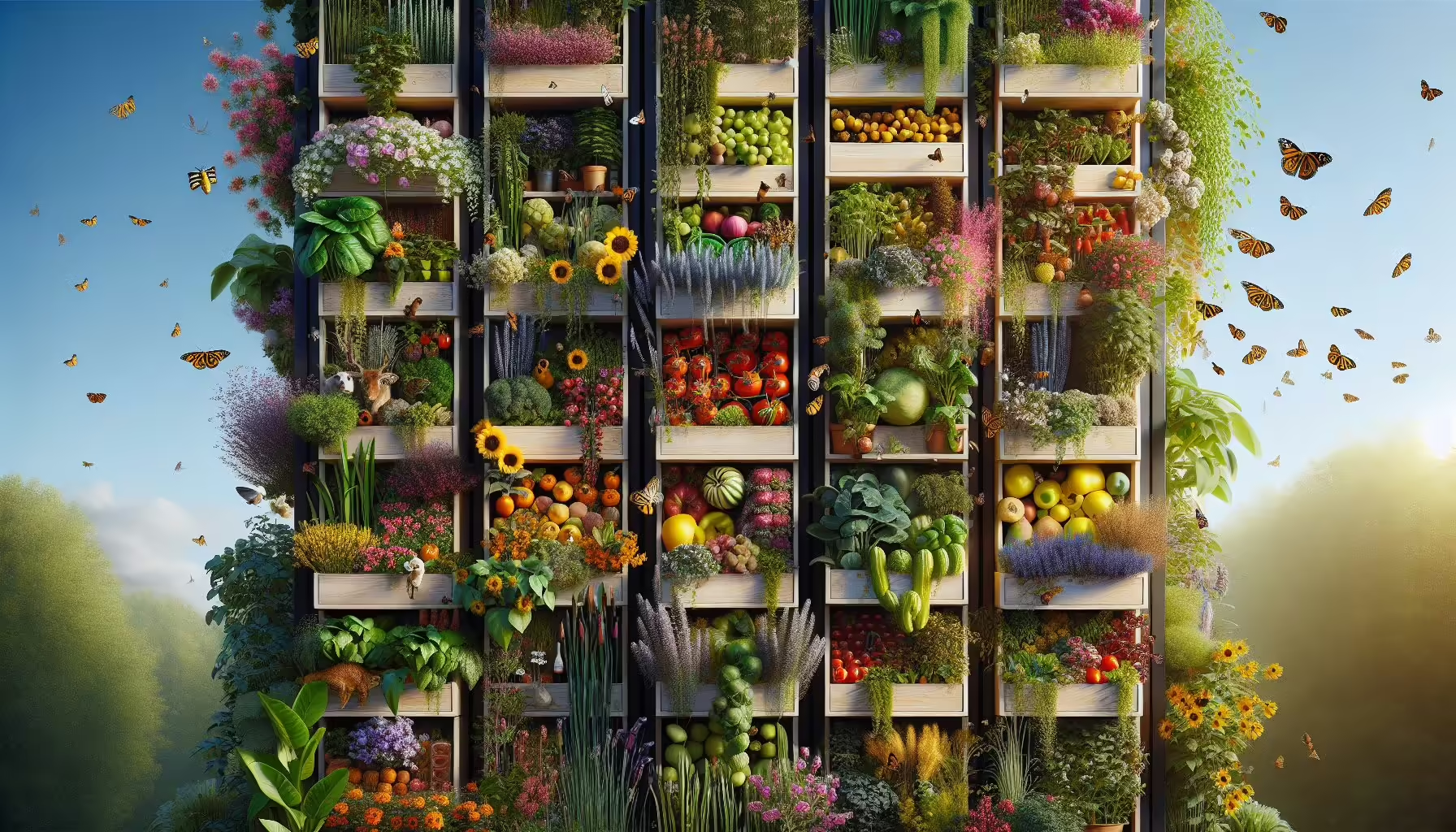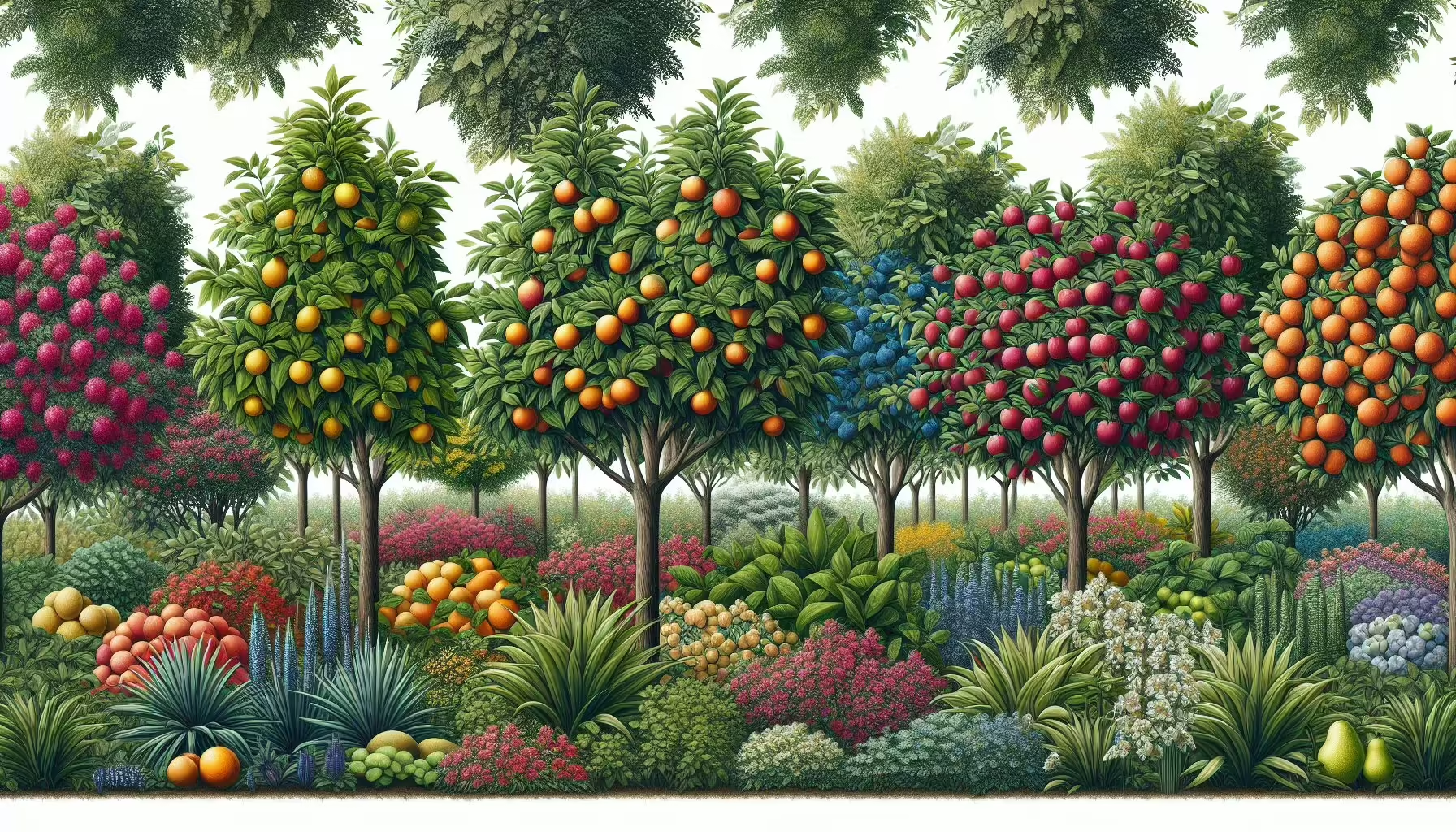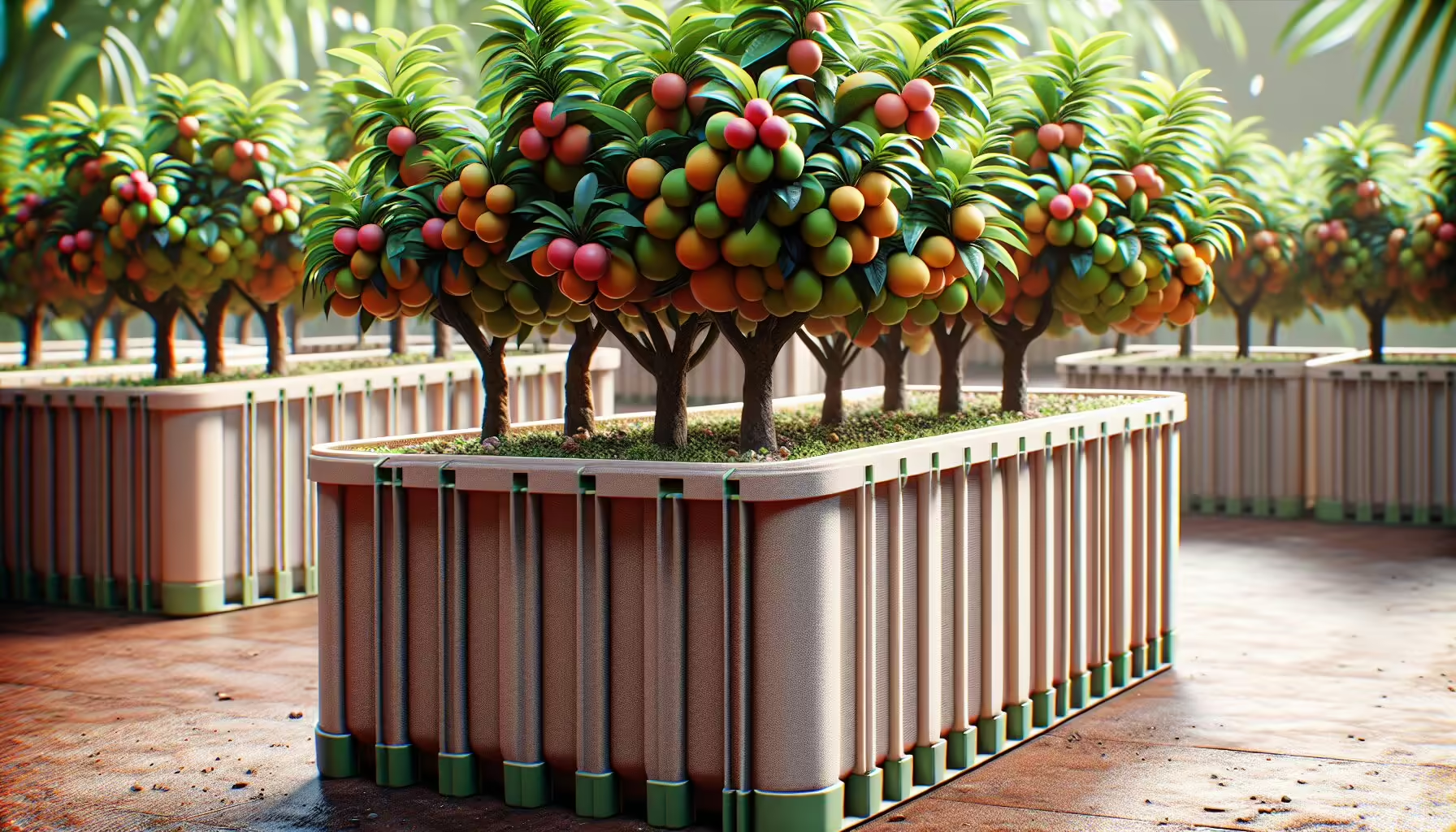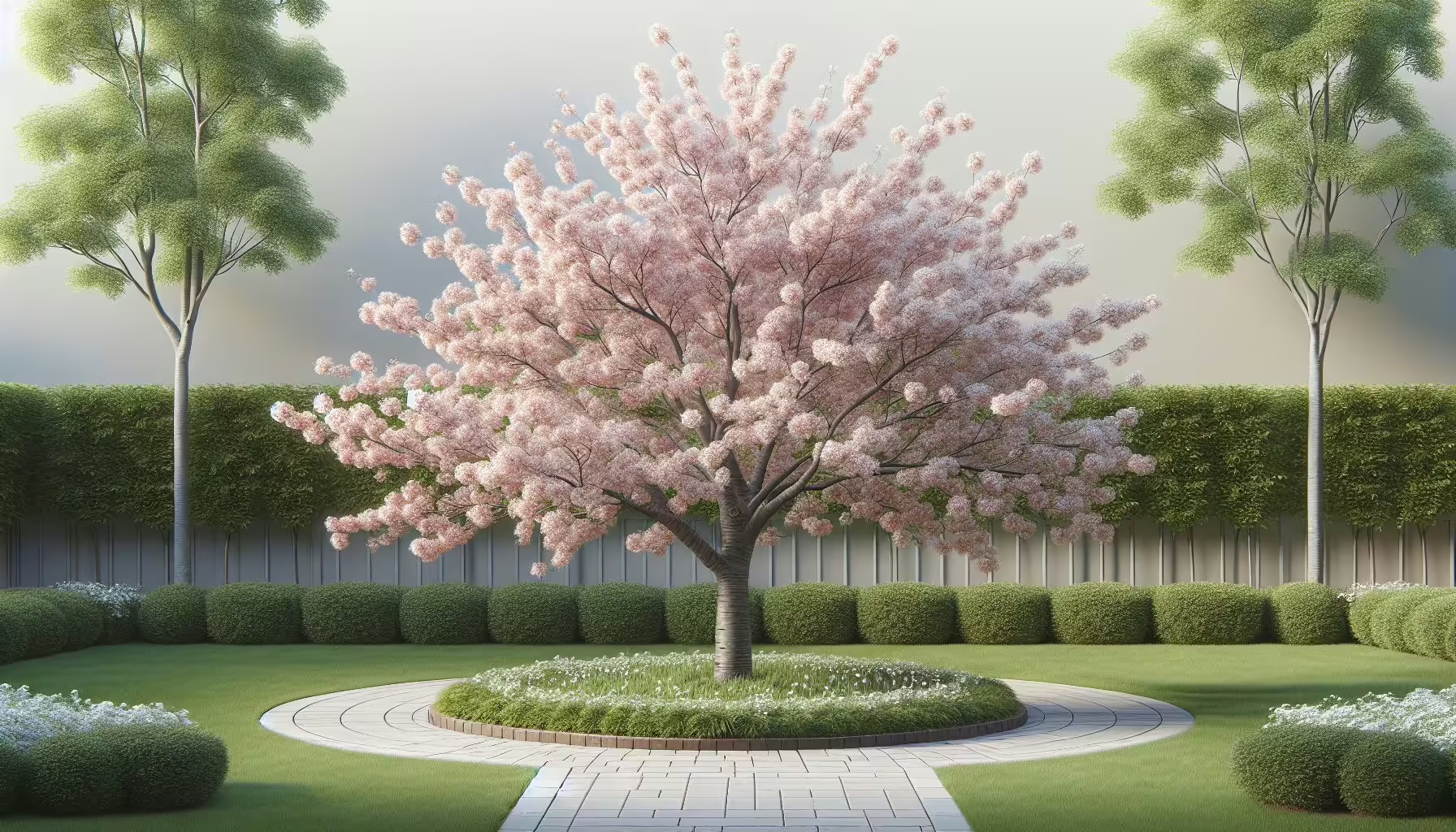Blooms Above: Vertical Gardening Magic for Edible Pollinator Plants
Benefits of Vertical Gardening
As I explore vertical gardening, I’m finding the perks go way past just looking good. Building a vertical garden does wonders for the air we breathe and even helps out our urban weather vibes.
Making Air Better
One of the coolest things about vertical gardens is how they help clean up the air. Plants are like little vacuums, picking up pollutants and breathing out oxygen. This not only kicks out nasty stuff floating around but makes the air crisper and fresher for me and the folks next door (Green.org).
Here’s a peek at how vertical gardening powers up air quality:
| Benefit | Description |
|---|---|
| Pollutant Vacuum | Plants suck up bad stuff polluting the air. |
| Oxygen Makers | With photosynthesis, plants pump out the oxygen we need. |
| Moisture Boost | Plants keep things moist, balancing the humidity in the air a bit better. |
Keeping the City Cooler
Another win for vertical gardening is how it helps cool down those super-hot city areas. Cities get warmer than the countryside mostly ’cause of us humans and fewer plants. Vertical gardens pitch in by offering shade, bringing down temperatures, and making the air cooler (Green.org).
Here’s how these gardens beat the heat in town:
| Impact | Explanation |
|---|---|
| Keep It Cool | Vertical gardens give shade to buildings, cutting down on heat soaking in. |
| Natural AC | Plants sweat out moisture, chilling the air around them. |
| Cut Costs | With cooler air, there’s less need to crank up the AC, saving energy in nearby spots. |
By adding vertical gardening with tasty pollinator plants at my place, I’m making air cleaner and cooling things down a notch or two. It feels great knowing my garden choices have a positive swing on the environment. If you’re itching to kick off your own edible pollinator spot, peek at my guide on how to start an edible pollinator garden.
Biodiversity Promotion
Building a biodiverse nook with a vertical garden is hands down one of the coolest things I’ve ever done. Seriously, these gardens aren’t just pretty faces—they’re buzzing hubs for all kinds of critters and plants, boosting the environment’s health, especially smack in the middle of city life.
Stormwater Management
Vertical gardens are like rainwater superheroes. When the skies open up, this lively jungle helps soak up the rain, cutting down on the nasty runoff that messes with our waterways. Plants guzzle up extra water, saving the area from ugly floods and soil washing away. This is super important in cities flooded with concrete, stopping natural water soaking. Plus, this whole business of cleaning water keeps local streams healthy and bubbling with life.
| Benefit of Vertical Gardens | Impact on Stormwater Management |
|---|---|
| Absorb Rainwater | Cuts Down Runoff |
| Prevent Erosion | Keeps Soil in Check |
| Filter Pollutants | Boosts Water Quality |
Space Optimization
If you’re like me and tight on space, vertical gardening’s a total lifesaver. Got a tiny spot? No sweat. Vertical planters, wall-hugging gardens, and hanging baskets are your new best friends. They let me grow heaps of edible plants without hogging ground space. More plant pals mean more biodiversity, plus a chance to watch different plant species mingle.
Fun fact: Mixing pretty plants with edible ones isn’t just practical, it’s eye candy. Adding colors, textures, and height differences attract all kinds of bees and folks who just love gardens.
| Space Optimization Techniques | Benefits |
|---|---|
| Trellises and Wall Planters | Saves Room |
| Hanging Baskets | Eye-Catching |
| Layered Planting | Grows More Plants |
Mixing these ideas into my gardening game doesn’t just make it look fab, it positively impacts nature. If you wanna get started, check out how to start an edible pollinator garden.
Edible Gardening Trends
Beauty and Utility Combo
Edible gardening’s gotten so much buzz, everyone wants to hop on this train. It’s where your garden looks pretty enough to make your grandma proud, but also supplies your dinner table. I love how I can blend the beautiful with the useful without missing a beat. Turn your yard into a feast for both the eyes and the belly! Growing nifty plants like edible flowers that attract butterflies not only fills me up but also gives me the warm fuzzies. Pretty gardens packed with lunch ingredients? Yes, please. Even with only a strip of patio, it’s amazing to see how my space gets a major glow-up and food boost (Love Your Landscape).
Space-Saving Ideas
Designing my little backyard Eden, I gotta think smart, keeping my babies bathed in sun and neatly rooted in good soil. Going vertical or using containers is like waving a magic wand over urban landscapes. Who thought trellises and hanging baskets could be garden game-changers? Seriously, they’ve turned me into a garden wizard without waving goodbye to my walking paths.
| Option | Description | Best For |
|---|---|---|
| Vertical Gardening | Grows plants up, not out. | Tight spots, patios, cityscapes |
| Container Gardening | Plants in pots or funky recyclables. | Snug spaces, apartment balconies |
| Fruit/Nut Trees | Big guys for big gains. | Big yards, shared plots |
Let me tell you, vertical gardening’s the real deal in cities where every inch counts. It allows me to create my leafy paradise while my sneakers still have a place to land. Containers bring a thrill of innovation—I can grow medicinal herbs that support pollinators in funky vases. Be it herbs, mini veggies, or flowery decors, my little Eden’s both yummy and eye-catching.
For no-nonsense tips on kickstarting my edible plot, I often visit how to start an edible pollinator garden or seasonal planting guide for edible pollinator gardens. Mixing style with a purpose makes gardening not just fun but a whole lot advantageous.
Integrating Edible Plants
Creating a garden where beauty meets practicality is quite the adventure for me. Mixing edible plants with good looks not only jazzes up the scene but also pulls in the buzzing bees and fluttery butterflies we all adore.
Aesthetic Placement
From what I’ve seen, putting your plants in just the right spots can really crank up the wow factor in a garden. Edible flowers, herbs, and fancy veggies can turn your green space into a feast for the eyes while doing double duty. Flowers like lavender, nasturtium, and pansies draw in the pollinators and brighten up the place with their splashy colors (University of Connecticut).
I like to stick the tall guys, like sunflowers and hollyhocks, in the back. They give me a framed look that really makes the shorter plants pop. Plus, when I plant my vines like squash or beans up high, they tumble down and create this gorgeous cascade. It’s like a living piece of art that comes together beautifully with every plant playing its part.
Mixing different heights, colors, and textures adds more than just beauty. It creates hangout spots for all sorts of helpful bugs, turning my garden into a buzzing hub for pollination.
Versatile Plant Selection
Choosing the right mix for my edible garden is like picking a team. I want players that not only taste good but also wave to our insect buddies. Edible gardens can be a buffet of flowers, herbs, veggie eye-candy, and sturdy perennials (Love Your Landscape).
Here’s a quick list of favorites I plant, along with their special skills:
| Plant Type | Yummy Bits | Pollinator Friends |
|---|---|---|
| Lavender | Flowers | Bees |
| Nasturtium | Leaves and Flowers | Bees, Butterflies |
| Broccoli | Edible Flower Buds | Bees |
| Marigold | Flowers | Bees |
| Squash | Blossoms | Bees, Butterflies |
| Garlic Scapes | Flower Stalks | Bees |
These plants let me use every nook and cranny while feeding both stomachs and eyes. The blend of plants creates a standout show, inviting tons of pollinators which makes everything healthier.
By figuring out how to kick-start an edible pollinator garden, I’m crafting a lively, eco-friendly spot that supports my green-thumb dreams and gives wildlife a cozy home too.
Vertical Gardening Techniques
When I’m in the thick of vertical gardening, there are two methods that scream my values of rolling out the welcome mat for bees and butterflies: trellis gardening and tower gardening. These tricks offer me a way to make the most of wall space and bring in the buzzy and fluttery friends all while growing plants.
Trellis Gardening
Trellis gardening is like my Swiss army knife for growing, ’cause it’s both easy and a major space-saver in my edible pollinator sanctuary. By setting up a frame using whatever materials I have at hand, like wood or some spiffed-up junkyard finds, I can train my plants to reach for the sky. This move not only clears up some ground space but also makes my garden kinda snazzy.
There’s a bunch of green stuff that’s perfect for a trellis life. A few of my go-tos are:
| Plant Type | Benefits |
|---|---|
| Tomatoes | Invites pollinators and ramps up yields when climbing. |
| Beans | Toss nitrogen back in the soil for nearby plants to drink up. |
| Peas | Early spring eats that jazz up biodiversity. |
| Cucumbers | Keep their fruit off the dirt, which means less rot goin’ on. |
| Grapes | Throw some shade and bring in a crowd of pollinators. |
Trellises are great for letting in fresh air and soaking up the sun, which does wonders for my plant babies. Curious about kick-starting your own project? I’ve got an article laid out for you on how to start an edible pollinator garden.
Tower Gardening
Tower gardening gets my thumbs up for squeezing max plants into teeny living quarters. Using vertical towers, I can throw a fiesta of different veggies in a tight space. This is a real jackpot for city dwellers or anyone without acres to their name (True Organic Earth).
I get to grow a mixed bag of crops using tower gardens:
| Plant Type | Ideal Tier |
|---|---|
| Leafy Greens (e.g., lettuce, spinach) | Top levels for primo lighting |
| Herbs (e.g., basil, parsley) | Upper stretches for quick grabbing |
| Strawberries | Middle to lower for their lazy, tumbling growth |
| Peppers | Bottom tiers to keep their bushy vibe groovin’ |
David, my buddy down the street, turned his yard into a tower wonderland, doubling space and making his patch a pollinator hotspot. Feeling the itch to get tinkering like David? Check out my piece on best companion plants for edible pollinator gardens.
Both trellis and tower gardening are my go-to moves not just to pack my garden but to make it a five-star hotel for pollinators. By weaving these vertical tricks into the mix, I’m raising a garden that’s alive with different plants and doing my part to keep the bee and butterfly crowd around.
Sustainable Edible Landscapes
Growing your own sustainable edible garden has its perks. You get to admire the beauty and taste what you’ve grown, all while giving local pollinators a hand. Here, I’m sharing the perks of a plant mix and the smart use of container gardens for edible flowers and other pollinator-friendly delights.
Mix of Plants
From my garden escapades, tossing a mix of different plants in the garden gives a way better payoff. It makes the place look prettier and gives a hand to more pollinators. A smart mix means having edible flowers, herbs, veggie eye-candy, and plants that keep coming back.
| Plant Type | Examples | Why They’re Great |
|---|---|---|
| Edible Flowers | Nasturtiums, Calendula | Brighten up the garden and draw in bees |
| Culinary Herbs | Basil, Mint, Thyme | Handy in cooking, loved by good bugs |
| Ornamental Veggies | Purple Cauliflower, Rainbow Carrots | Eye-catching and tasty |
| Perennials | Strawberries, Asparagus | Keep coming back with less effort |
Playing around with plant heights and colors makes your garden look lively. Plus, those perennial plants keep the party going for pollinators and save you some work in the long run (Love Your Landscape).
Container Garden Implementation
Containers? They’re the best pals for small-space gardeners. They let you make the most of your space and still grow a cool edible garden. I’ve found you can move them to catch the best sun or change up your garden look easily.
With containers, you can grow a bit of everything, from herbs to flowers that both look good and you can eat. Perfect for tight spots but enough room to mix it up:
| Container Plant Type | Tips on What to Plant | Why It’s Good |
|---|---|---|
| Herbs | Parsley, Chives | Grows well together, ready for picking |
| Edible Flowers | Bumblebee Mint, Borage | Tasty flowers that bees love too |
| Small Vegetables | Lettuce, Radishes | Do great in pots, simple to care for |
Having a container garden means you can move things around and keep the diversity alive. Happy plants attract good bugs, keeping your little ecosystem buzzing and reducing the need for bug spray (University of Connecticut).
If you’re curious about which plants to try or how to kick-start your edible pollinator haven, check out how to start an edible pollinator garden or best companion plants for edible pollinator gardens for more ideas.




Post Comment